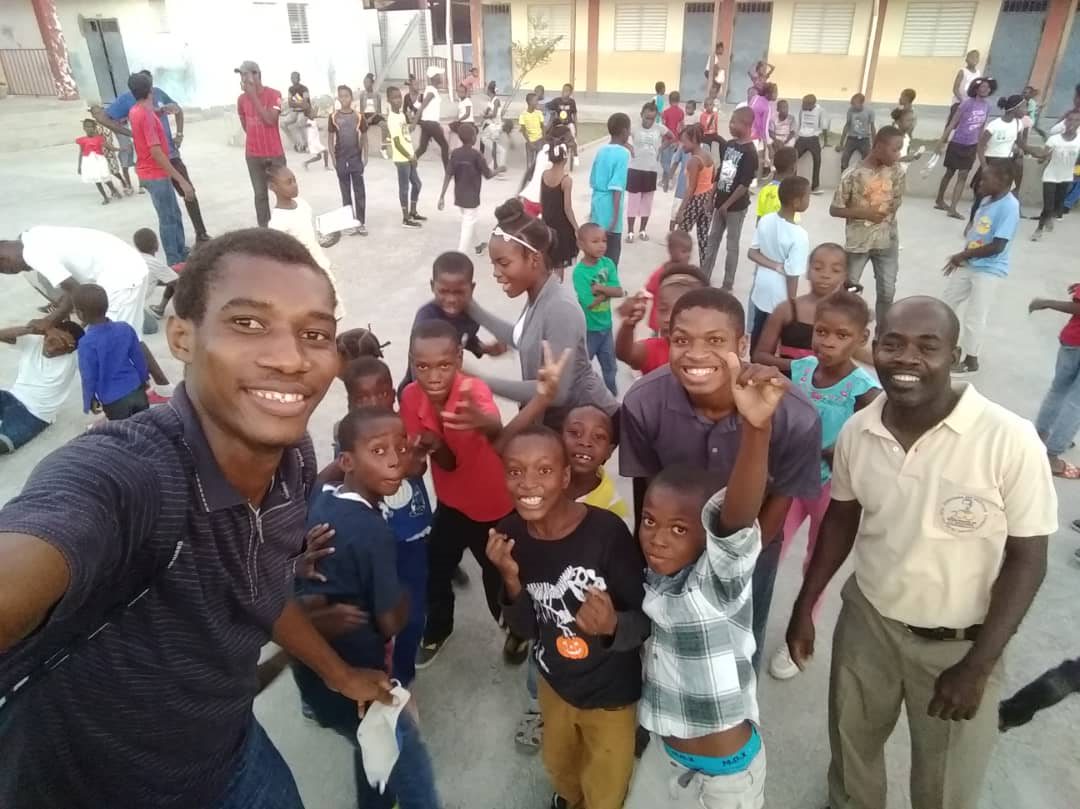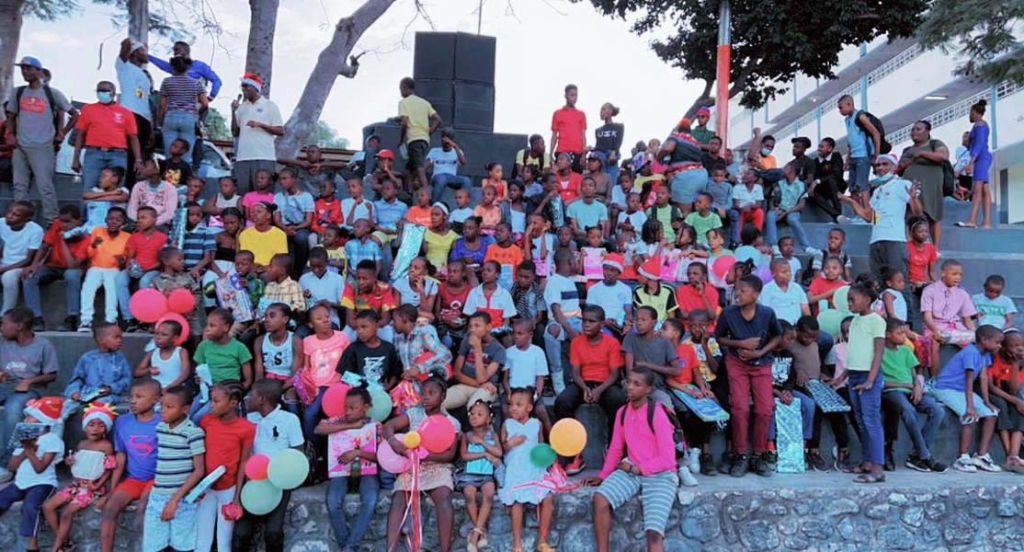HAITI: Reuniting Separated Children with Their Families
(UNICEF / By Suzanne Suh) Seven-year-old Mitchialine Innocent plays with her cousin in the courtyard of their home in Port-au-Prince, Haiti. You wouldn’t be able to tell that, only a year ago, she was rescued, half-starved, from an ‘orphanage’, or residential care center.
Mitchialine’s is a success story. From an impoverished family, she was abandoned by her father and left at a residential care center by her mother – but ultimately reunited with relatives with the help of Institut de Bien Être et de la Recherche Sociale (IBESR), Haiti’s child protection agency.
PROTECTING SEPARATED CHILDREN
Mitchialine is one of thousands of children in Haiti who have been separated from their families. Even before the devastating earthquake of 2010, it was estimated that some 1.2 million Haitian children were extremely vulnerable to multiple forms of violence and abuse, including physical and emotional abuse, domestic violence, armed and sexual violence.
To help protect children from exploitation and abuse, UNICEF provides financial and technical support to strengthen IBESR, which is tasked with the protection of all children. “The protection agency documents children who have been placed in institutions and finds alternatives to institutional placement for children,” explains Christina Torsein, child protection chief at UNICEF Haiti.
From 2010 to 2011, about 9,000 separated children were registered; 3,000 have been reunited with their families.
UNICEF has also supported IBESR to create a directory listing all residential care centers in the country, as well as their condition.
In January, IBESR, together with the child protection police Brigade de Protection des Mineurs, closed three centers in which children had been abused and neglected and placed the children in temporary care facilities, where they received medical and psychosocial care.
Mitchialine spent three years at a center that was closed last year because of reports of abuse and neglect.
NO EASY TASK
Reuniting separated children with their families is no easy task in a country with few resources for social services. According to Ms. Torsein, “Access to services in Haiti is highly unequal, and, the poorer a child is, the less likely he or she is to have access to basic rights.”
Mitchialine was identified by a relative visiting the center. Social workers at IBESR then worked to locate her closest living relative –her aunt Vanille Onezaire. After a process of family verification facilitated by IBESR, Mitchialine was reunited with Ms. Onezaire. Ms. Onezaire had thought the little girl had been lost.
“She may seem shy now, but when she first came, she didn’t say a word! Not a word!” recalls Ms. Onezaire, touching Mitchialine’s cheek tenderly. She gestures towards Mitchialine’s arms, which are covered with dark scars. “She got those at the orphanage,” she says. “Scars everywhere.”
She describes Mitchialine’s appearance when she first left the residential care center. “She was so thin, you can’t imagine…She had a swollen stomach from being malnourished. And her hair was falling out.”
“When she first arrived, Mitchialine didn’t play at all,” continues Ms. Onezaire. Mitchialine’s face lights up as she introduces her favorite toy, a green stuffed bear she calls Nounou.
Mitchialine puts Nounou away to help with the housework. Her favorite chore is helping with cooking. She smiles shyly when complimented, then quickly ducks her head and immerses herself in the simple, domestic task in front of her, content with her place in the family.
THE CHALLENGE OF REUNIFICATION
Carine Phadael is the IBESR social worker who helped reunite Mitchialine with her aunt. Ms. Phadael has been paying regular visits to Ms. Onezaire’s home since the girl’s placement to make sure that Mitchialine is doing well.
The first step – finding a home for Mitchialine – has been taken. But the next step is harder – how does Ms. Onezaire, who is already struggling to feed her own family, feed an extra mouth?
Ms. Phadael explains that IBESR provides a one-time stipend to families who have been reunited with their children. But the stipend is not enough to cover basic needs over time in a country in which 55 per cent of the population live below the international poverty line of US$1.25 per day.
###




